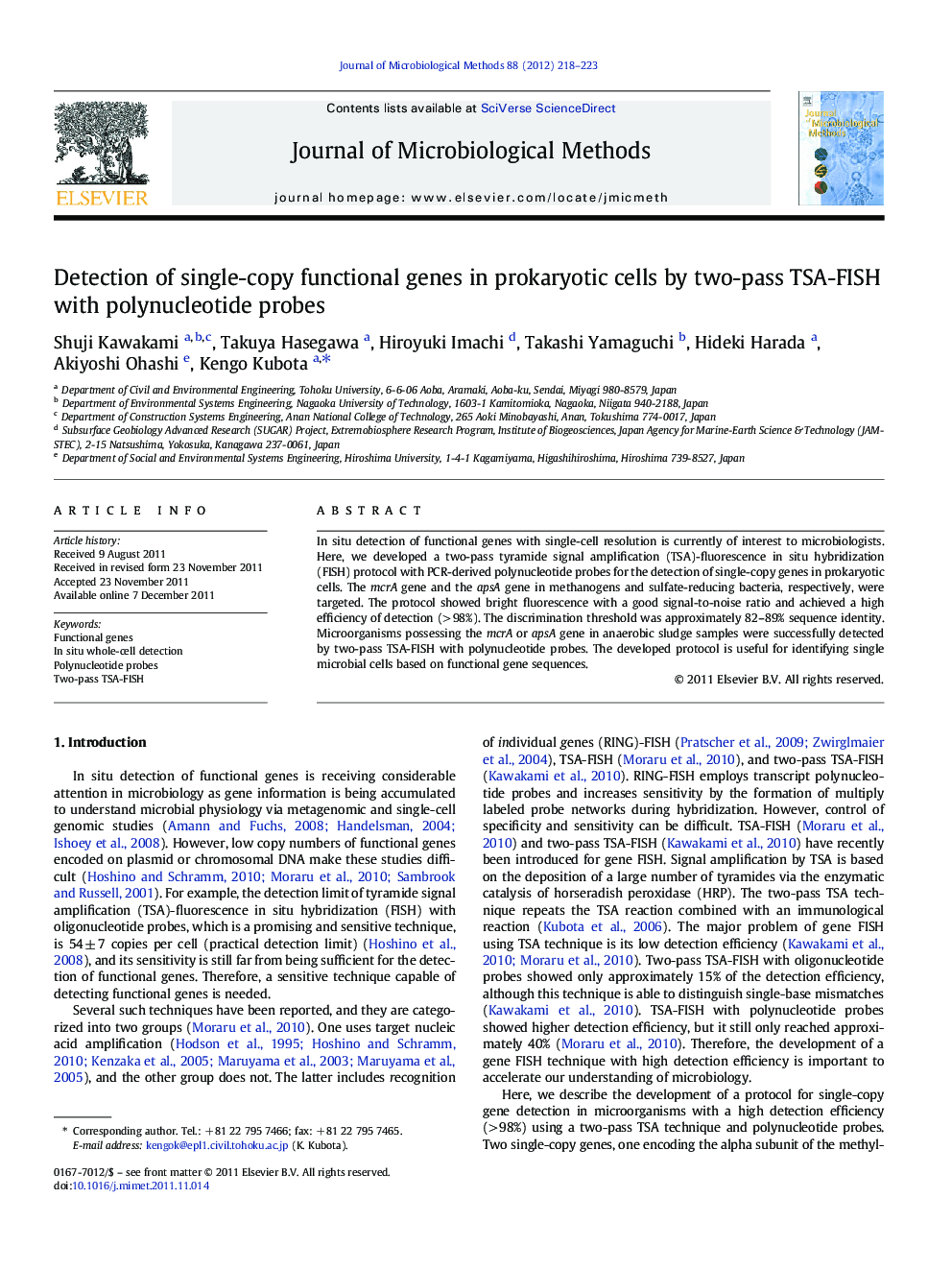| Article ID | Journal | Published Year | Pages | File Type |
|---|---|---|---|---|
| 2090321 | Journal of Microbiological Methods | 2012 | 6 Pages |
In situ detection of functional genes with single-cell resolution is currently of interest to microbiologists. Here, we developed a two-pass tyramide signal amplification (TSA)-fluorescence in situ hybridization (FISH) protocol with PCR-derived polynucleotide probes for the detection of single-copy genes in prokaryotic cells. The mcrA gene and the apsA gene in methanogens and sulfate-reducing bacteria, respectively, were targeted. The protocol showed bright fluorescence with a good signal-to-noise ratio and achieved a high efficiency of detection (> 98%). The discrimination threshold was approximately 82–89% sequence identity. Microorganisms possessing the mcrA or apsA gene in anaerobic sludge samples were successfully detected by two-pass TSA-FISH with polynucleotide probes. The developed protocol is useful for identifying single microbial cells based on functional gene sequences.
► We developed a FISH protocol for the detection of functional genes in prokaryotes. ► Bright fluorescence and a high detection efficiency (> 98%) were obtained. ► The discrimination threshold was about 82–89% sequence identity. ► The protocol is applicable to environmental samples.
